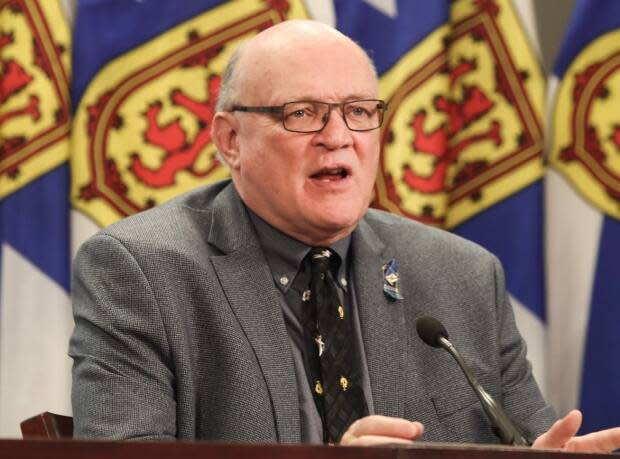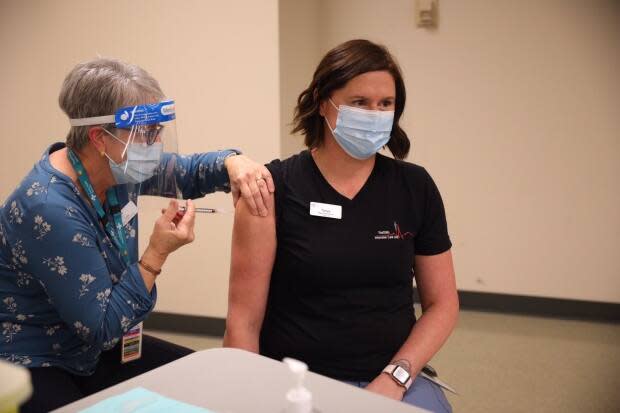Why do people lie to COVID-19 contact tracers? Often, because of stigma and shame
Lying is something we all do, and we start at a very early age. Research has found that children as young as two tell lies; by the age of seven, we have the art of lying pretty much mastered.
There are many reasons for lying, but often it's something we do to contain the damage that unfiltered honesty might unleash.
And there are different types of lies: from outright fabrication, to altering some of the facts or to simply leaving out some information.
There's a reason why we pledge to "tell the truth, the whole truth and nothing but the truth," in court — that's the only way to get the full and honest story.
Contact tracing
When it comes to controlling the spread of infectious disease, getting the truth, the whole truth and nothing but the truth is vital. Contact tracers depend on accuracy, details and the completeness of information as they try to recreate the past two weeks of someone's life if they're carrying the novel coronavirus.
That includes getting a full list of people who were within six feet of contact for five minutes with the person who is infectious.
Those people, the ones who have been inside that personal bubble, are at greatest risk of getting infected themselves so contact tracers make every effort to identify and alert them. Any gap in information can be a potential escape route for the virus.

Withholding information
What happens when someone lies?
The consequences of lying are significant, as set out in the Health Protection Act and the Emergency Management Act in Nova Scotia. Communicable disease control is serious business, and the medical officer of health as well as public health inspectors have far-reaching powers if a person is deemed to be putting public health at risk. Fines, into the thousands of dollars, mandatory quarantine at a special facility, involuntary medical treatment and even a prison term are possibilities if you break the rules.
But, in all honesty, no one in government wants to use those penalties. They are expensive to enforce, make enforcement officials look bad and are really just a last resort when people refuse to "do the right thing." If fines are imposed, they're often accompanied by great publicity in order to deter others — and to demonstrate how serious a breach of trust can be.
By the end of 2020, more than 600 Nova Scotians were fined for breaching pandemic rules, like gathering limits or self-isolation.
No one had been jailed and it is unlikely that anyone will be in the future.

Contact tracing to control the spread of communicable disease is nothing new; in fact, it's one of the oldest public health tools we've got. In recent history, it's been used to track the spread of tuberculosis, sexually transmitted diseases, head lice and HIV/AIDS, so the techniques for collecting information are well established.
So, too, however, is the stigma associated with having a disease that's being contained — and the likelihood of public shaming that may go with it.
Stigma and shaming often happen when there is something we fear or don't understand. Mental illness and addiction are examples that quickly come to mind.
Fostering honesty
Think back to what happened with trying to trace HIV/AIDS, when stigma and shaming prevented people from disclosing what was considered high-risk behaviours to doctor. It made those people less likely to get tested, even if they thought they had a disease, and made them feel unsafe sharing their exposure with close friends and family.
People wanted to protect themselves from being judged, even by their loved ones.
Does this sound familiar? It should: it's exactly what we saw at the beginning of the pandemic — and continue to see throughout it.
'To keep everyone healthy, we need to create a safe environment for open disclosure that's met with compassion and support.' - Mary Jane Hampton, health-care consultant
Shaming didn't deter risky behaviour in the past. Instead, it deterred disclosure, and we've spent the last 40 years repairing the damage created by stigmatization.
We're still working to build that trust, on both sides. A study done last summer at Brock University in Ontario found that that at least one-third of the respondents with COVID-19 lied about having symptoms, and also about the degree that they physically distanced from others. About a quarter of respondents said they lied about how closely they were following health protocols, while those with COVID-19 were even more likely to lie about it.
People who hid symptoms said they were afraid of stigma and social judgment, even more so if they had broken public health rules. In short, shaming people and creating a stigma results in less reliable public health data — and that's bad for all of us.
Listen to the interview
To get the truth, we need to create the conditions for it, but we often do just the opposite. When people hear about a COVID case, their first response is usually to speculate about what bad choices the person must have made to contract it — "Did they travel? Attend a party? Break a rule?" That's quickly followed by blame and the person testing positive with COVID can be set adrift in a sea of guilt.
To keep everyone healthy, we need to create a safe environment for open disclosure that's met with compassion and support. We still have a long road before enough people are vaccinated to put the virus behind us and, until then, contact tracing will be one of our best defences. Open disclosure protects everyone and potentially saves lives.
This virus is a great equalizer. While some people are at higher risk of getting sick and dying from COVID-19, as humans we all share the same means of spreading and contracting it: we breathe.
And there is no shame in that.

